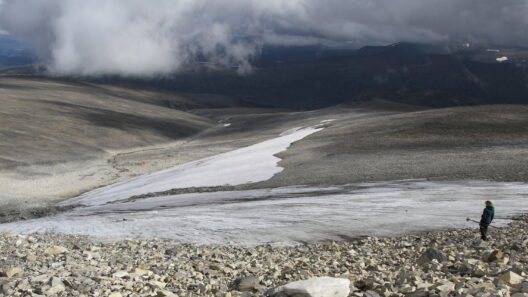In recent years, the discourse surrounding climate change has often been shrouded in controversy and misinformation. Among the most provocative claims is that former President Donald Trump referred to global warming as a “Chinese hoax.” To adequately address this assertion, it is imperative to dissect the origins of this claim, Trump’s remarks on the subject, and the broader implications of such rhetoric on public perception and policy.
Trump’s infamous tweet, which sparked waves of backlash, first surfaced in November 2012. In that tweet, he posited: “The concept of global warming was created by and for the Chinese in order to make U.S. manufacturing non-competitive.” This statement encapsulated a sentiment that would resonate throughout his political career—skepticism towards scientific consensus, particularly regarding climate change. However, this characterization of global warming as a “hoax” is a reflection of a larger trend: the politicization of science.
To contextualize Trump’s remarks, it is critical to illustrate the scientific landscape of climate change. The overwhelming majority of climate scientists agree that climate change is occurring and is significantly influenced by human activity, particularly the burning of fossil fuels. This consensus is backed by extensive research and reports published by reputable organizations, including the Intergovernmental Panel on Climate Change (IPCC). Yet, amidst credible scientific findings, the rhetoric surrounding climate change has become fraught with misinformation, often propelled by political narratives that seek to undermine the legitimacy of established science.
The “Chinese hoax” statement serves not merely as an anomaly but as a bellwether for Trump’s broader stance on environmental issues. As president, he enacted policies that reversed numerous regulations aimed at curbing greenhouse gas emissions and bolstering renewable energy. This pivot away from environmental stewardship raises important inquiries: How does political rhetoric shape public perception of climate science? What are the ramifications of such skepticism on environmental policy?
Understanding the psychological underpinnings of climate change denial unveils a complex interplay between belief systems and factual information. Confirmation bias often leads individuals to embrace information that corroborates their existing beliefs while dismissing contradictory evidence. In the context of Trump’s followers, this bias may foster a sense of mistrust towards scientific consensus, allowing the notion of climate change as a hoax to proliferate in certain circles. The repercussions of this trend are profound, as it impedes constructive dialogue and hinders actionable solutions to climate-related challenges.
Moreover, the framing of climate change as a hoax has implications that extend beyond individual belief systems; it has tangible effects on legislation and international cooperation. Countries that are skeptical of climate science are less likely to participate in global efforts to mitigate climate change, such as the Paris Agreement. Consequently, this skepticism can stymie progress toward reducing global emissions and transitioning to sustainable energy practices, ultimately jeopardizing the health of our planet and future generations.
In dissecting the narrative around Trump’s comments, it becomes evident that communication strategies play a pivotal role in shaping our collective understanding of climate change. The scientific community must strive for clarity and accessibility, breaking down complex information into digestible formats that resonate with a wider audience. Engagement through social media platforms, public forums, and educational initiatives is paramount in navigating the murky waters of misinformation.
Furthermore, fostering a culture of environmental accountability is essential. This entails holding political leaders accountable for their rhetoric and policies, while simultaneously amplifying the voices of grassroots activists advocating for sustainable change. Collective action can galvanize communities around the urgency of climate issues, promoting a shared commitment to combating climate change.
Now, addressing the human element of climate change is equally crucial. Activists often underscore the disproportionate impact climate change has on marginalized communities, drawing connections between socio-economic disparity and environmental degradation. These narratives reveal that climate change is not merely an abstract concern for the future; it represents an immediate threat to livelihoods, health, and social stability. This intersectionality enriches the conversation, making it clearer that the stakes are progressively higher and necessitating an inclusive approach in climate discussions.
Indeed, the implications of seeking a nuanced understanding of climate change are manifold. It propels individuals to question existing assumptions and confront the uncomfortable realities of ecological crisis. However, engaging in constructive discourse requires an inclusive stance that welcomes dissenting opinions while emphasizing the factual backbone of climate science. Inviting civil debate rather than denigration fosters an environment conducive to learning, growth, and ultimately change.
In summary, the notion that Trump called global warming a hoax is an oversimplification of a more intricate narrative concerning the interplay of politics and environmental science. Understanding the context of Trump’s comments elucidates the ongoing struggle between factual evidence and political rhetoric. To move beyond this impasse, it is essential to cultivate critical engagement with climate science, foster dialogue, and promote policies grounded in environmental stewardship. By reframing the conversation around climate change as an urgent and collective challenge rather than a partisan issue, society can unite in striving toward sustainable solutions that benefit all. In the end, the focus must shift from skepticism to a concerted effort to address and mitigate the effects of climate change, ensuring a thriving planet for future generations.





